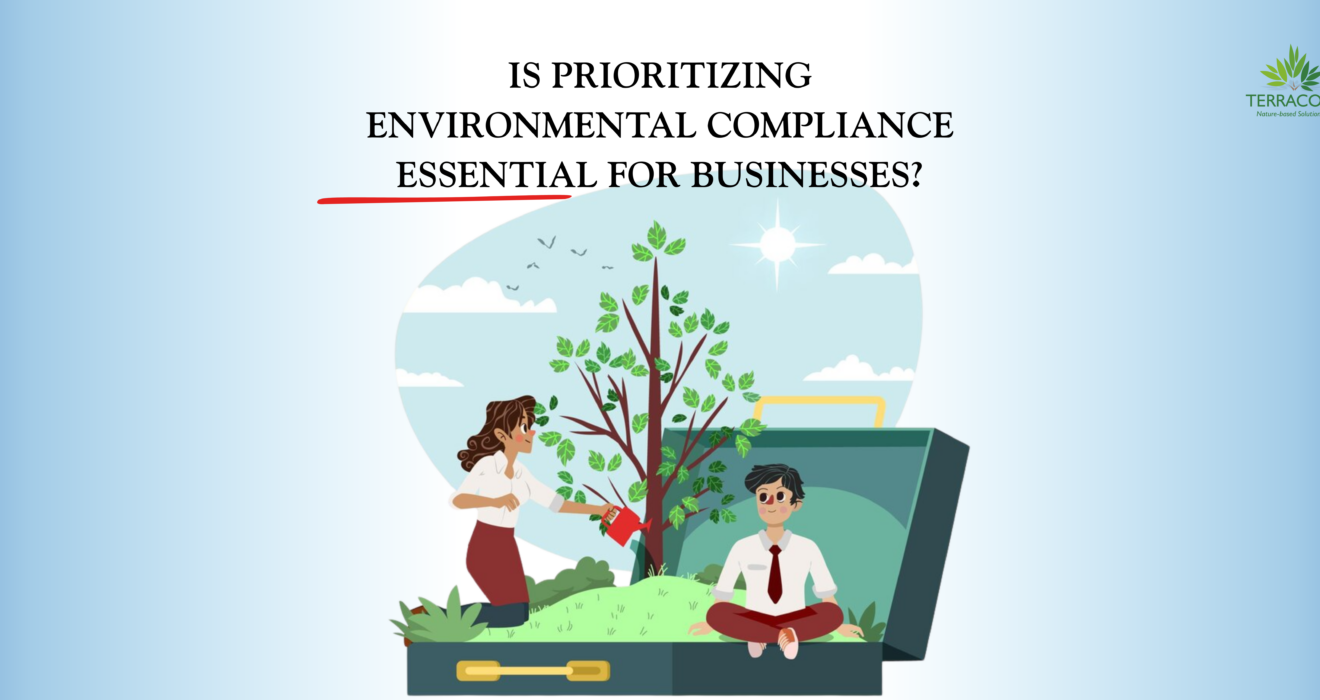For businesses in India, environmental compliance is no longer just a regulatory hurdle; it has become a vital aspect of ensuring competitiveness, sustainability, and long-term success. Ignoring environmental regulations in India could lead to far-reaching consequences that go beyond fines—such as project delays, reputational damage, and even complete shutdowns. While compliance may seem like a straightforward legal obligation, industries in India, especially construction, manufacturing, and energy, are grappling with complex environmental challenges.
The Importance of Compliance: More Than Avoiding Penalties
India is tightening its grip on environmental laws and regulations. The Ministry of Environment, Forest and Climate Change (MoEFCC) and state pollution control boards are increasing scrutiny of industries to enforce compliance with air, water, and waste management standards. For example, the National Green Tribunal (NGT) plays a significant role in regulating industries and imposing hefty fines for non-compliance. In 2020, the National Green Tribunal (NGT) imposed penalties exceeding ₹100 crore on industries across India for violations of environmental laws, including heavy fines on illegal mining, industrial pollution, and improper waste disposal.
Failure to comply with these regulations can have serious financial repercussions. While fines may be substantial, the long-term costs of environmental degradation and non-compliance can be far more damaging to a company’s reputation and market position. For instance, studies indicate that businesses that ignore sustainability practices face a 10-20% reduction in their market value.
A Case in Point: High-Profile Violations in India
In India, several industries have faced penalties for environmental violations. One notable example is the Sterlite Copper plant in Tamil Nadu, which was shut down in 2018 due to severe environmental violations, including air and water pollution. The plant’s operations were linked to multiple health hazards for nearby communities, and despite regulatory intervention, its closure caused major economic disruption. The economic loss was estimated at around ₹14,000 crore, including the plant’s shutdown costs, loss of production, and environmental damage.
Another example is the waste management violations by the ship-breaking industry in Gujarat. The industry faced penalties exceeding ₹50 crore for improper disposal of hazardous waste in 2019, leading to legal challenges and significant environmental concerns along the coast.
These cases show how neglecting environmental compliance not only results in legal penalties but also harms the long-term sustainability of businesses. In fact, over 30% of industries in India face at least one environmental violation penalty each year.
Compliance Challenges in High-Risk Industries in India
India’s high-risk industries, such as construction, manufacturing, and energy, are particularly vulnerable to environmental compliance challenges. The construction sector, for example, is a significant contributor to India’s carbon emissions, accounting for approximately 22% of the country’s total greenhouse gas emissions International Energy Agency (IEA) in 2020., as reported by the International Energy Agency (IEA) in 2020. It also faces challenges related to waste generation and management, with construction debris often being dumped irresponsibly, causing environmental degradation.
The manufacturing sector in India is similarly challenged, with air and water pollution being major concerns. The textile industry in India is one of the largest water polluting sectors, contributing significantly to industrial wastewater discharge. According to the Central Pollution Control Board (CPCB), the textile sector accounts for around 20% of the total industrial water pollution in the country, Moreover, industries like chemicals and textiles have often been flagged for non-compliance with pollution norms, especially regarding the discharge of waste into water bodies.
The energy sector, including coal and renewable energy projects, also faces regulatory complexities. As of 2022, over 50% of India’s electricity still comes from coal, and non-compliance with the stricter emission standards has led to several coal-fired plants being penalized under the Air (Prevention and Control of Pollution) Act. This has resulted in delays and cost overruns in multiple energy projects.
Compliance as a Strategic Advantage
Beyond avoiding fines, businesses in India can gain long-term benefits from environmental compliance:
- Health & Productivity Gains: Reduced pollution levels and better waste management practices lead to healthier employees, improving productivity and reducing absenteeism. In India, where air quality in major cities is often ranked among the worst in the world, addressing this issue proactively can have a significant impact on worker well-being. Companies that adopt cleaner practices have reported a 15% reduction in absenteeism and a 12% increase in productivity.
- Stronger Market Positioning: Indian consumers and investors are becoming more environmentally conscious. In 2021 survey revealed that a significant number of Indian consumers prefer purchasing from companies committed to sustainable practices, with environmental responsibility increasingly influencing brand loyalty and consumer choices.. Companies that are seen as environmentally responsible gain trust and loyalty, improving their market positioning. The rise of sustainability-conscious investors and consumers makes compliance a gateway to competitive advantage.
- Cost Savings Through Efficiency: Energy-efficient technologies, waste reduction, and sustainable practices are not just good for the environment—they also lead to cost savings in the long term. For example, businesses that invest in renewable energy solutions, like solar panels, are benefiting from government incentives and reducing their energy costs. According to the India Solar Alliance, companies that switched to solar power reduced their electricity bills by up to 40% in the first year of operation.
Leveraging Environmental Impact Assessments and Nature-Based Solutions
In India, many businesses are turning to Environmental Impact Assessments (EIAs) to better understand the potential environmental effects of their projects. These assessments not only help mitigate risks but also ensure that businesses stay on the right side of regulatory requirements. Over 60% of infrastructure projects in India now require an EIA before approval, a clear indication of the growing importance of environmental oversight.
Nature-based solutions (NBS) are also gaining traction in India. Projects such as mangrove restoration along the coasts of Kerala, Gujarat, and West Bengal not only offer coastal protection but also contribute to carbon sequestration, creating a sustainable and economically viable solution. According to the International Union for Conservation of Nature (IUCN), NBS could provide up to 37% of the cost-effective climate change mitigation needed by 2030, potentially saving Indian businesses billions of dollars in environmental damage costs.
Similarly, large-scale reforestation initiatives in the northeastern states of India are helping businesses offset their carbon emissions while promoting biodiversity. These initiatives have resulted in over 10,000 hectares of forest restoration in the past decade, benefiting both the environment and local communities.
The Role of Compliance Audits in Future-Proofing Indian Businesses
In India, keeping track of ever-changing environmental regulations is key to staying ahead of compliance requirements. Regular compliance audits are vital for businesses to assess their environmental performance, identify gaps in their operations, and take corrective action before regulatory issues escalate.
In 2020, the Central Pollution Control Board (CPCB) conducted over 4,000 environmental audits across various industries in India to ensure compliance with national environmental standards. This is part of the CPCB’s ongoing efforts to strengthen the enforcement of environmental regulations and reduce violations. This makes it essential for businesses to stay informed and proactive about compliance.
Conclusion
In India, environmental compliance is no longer just a legal obligation—it’s a fundamental aspect of responsible business practices. By aligning with environmental regulations, businesses can reduce risks, improve operational efficiency, and create long-term value. For example, businesses that adhere to environmental standards have been shown to experience 15-20% higher profitability in comparison to those that neglect sustainability.
Those that integrate sustainability into their strategy not only avoid legal penalties but also gain a competitive edge in an increasingly eco-conscious market. As regulations become stricter and more focused on sustainability, staying ahead of compliance is essential for the survival and growth of businesses in India.

Written By
Anjeeta Goud
Team Terracon Ecotech
Reference :
The importance of environmental compliance for businesses




